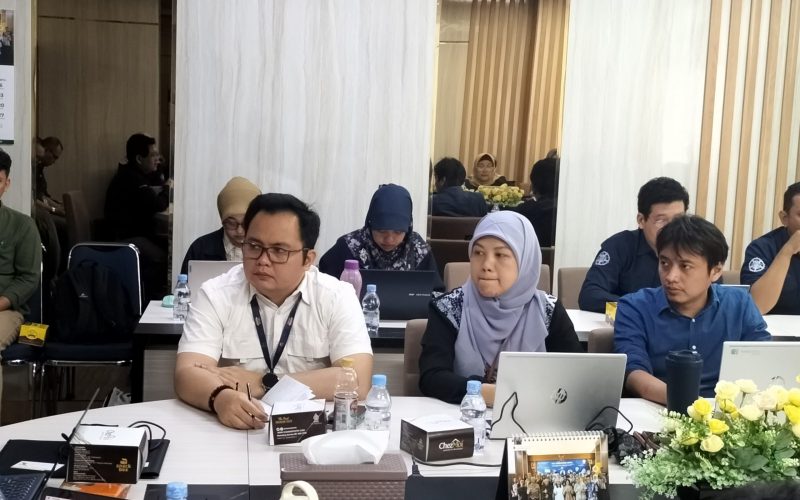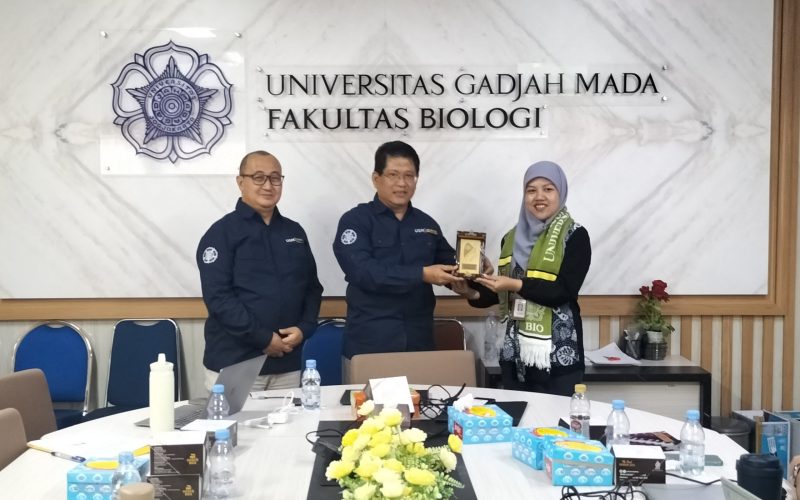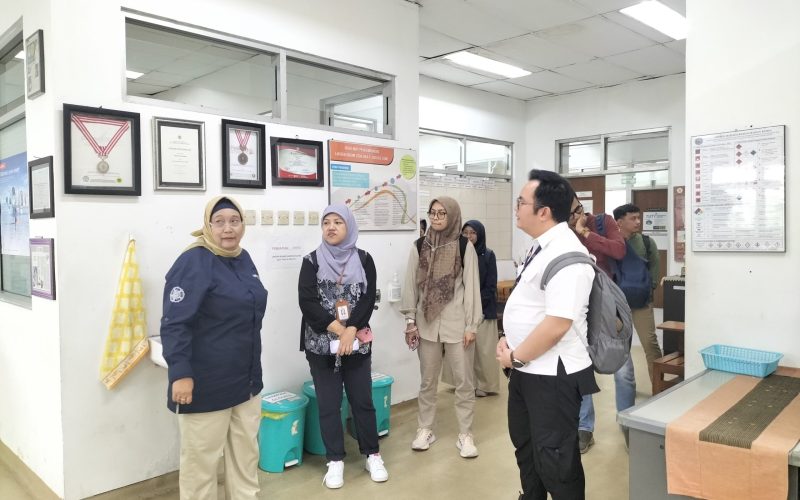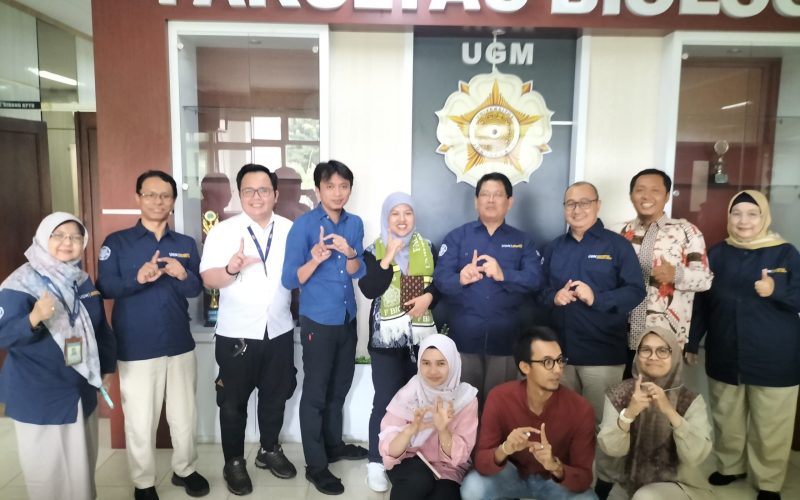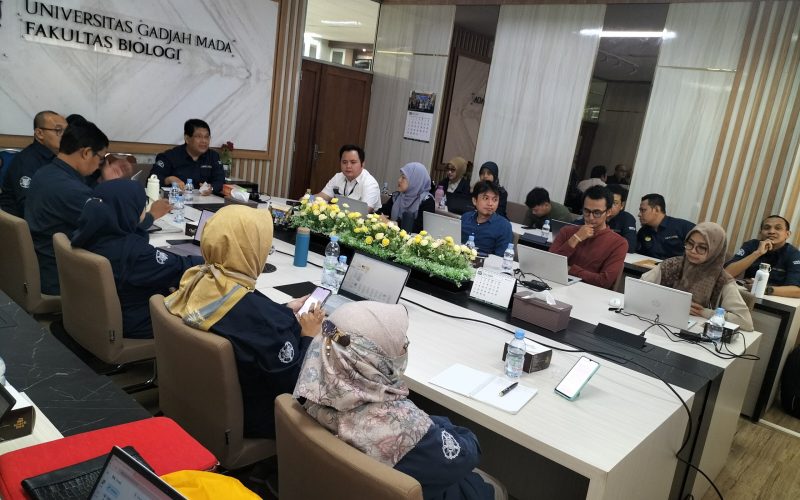Yogyakarta, 3 July 2024 – The Faculty of Biology, Universitas Gadjah Mada received a visit from the National Development Planning Agency (BAPPENAS) of the Republic of Indonesia consisting of the BAPPENAS Forestry Directorate Team. The discussions and field visits related to research and development of genetic resources for biodiversity in Indonesia. The visit was received in the KPTU Meeting Room, Faculty of Biology UGM, also attended by Prof. Dr. Budi Setiadi Daryono, M.Agr.Sc. as Dean of the Faculty of Biology, Dr. Eko Agus Suyono, M.Sc. as Vice Dean for Research, Community Service, Collaboration and Alumni Affairs, lecturers from various laboratories at the Faculty of Biology, as well as Head of the Agrotechnology Innovation Center UGM, Alan Soffan, S.P., M.Sc., Ph.D.
Prof. Budi as Dean of the Faculty of Biology welcomed the field visit from BAPPENAS, especially as support for the curation of genetic resources for biodiversity is very necessary for ecosystem sustainability. He, accompanied by Dr. Eko delivered a profile of the Faculty of Biology. He underlined the concern in the world of biology regarding biological curation through the establishment of a new study program at the Faculty of Biology, the Profession Program for Biodiversity Curator (PKKH).
Alan as Head of the Center for Agrotechnology Innovation UGM (PIAT) also welcomed BAPPENAS’ visit. He said that PIAT would also support efforts to manage Indonesia’s biodiversity in the future. BAPPENAS colleagues also plan to visit the PIAT UGM area in Berbah, Sleman, Yogyakarta.
Farida Yulistianingrum, S.Si., ME, MPP, from BAPPENAS, revealed that BAPPENAS is aware of the potential of Indonesia’s biodiversity and genetic resources. The BAPPENAS visit aims to explore data, information and views of experts/academics and agencies regarding gaps in the development of the genetic resource axis. These development efforts will then be continued with mapping and analysis of biodiversity in each region. Farida is also aware of the challenges related to research at the tertiary level, including regulations that are considered not support the implementation of research.
“Resource management is not yet connected, each is mostly kept at the level of individual university researchers,” said Prof. Budi. He also expressed the concerns that prompted the formation of the Indonesia Biodiversity Index (IBI) in 2019. IBI collaborates with the Indonesian Conservation Communication Forum (FKKI) and various Non-Government Organizations (NGOs) in Indonesia to collect and share biodiversity data. Prof. Budi emphasized that there is a lot of data produced by Indonesian researchers, but it is spread in the form of thesis, books, and so on. This data curation effort has been ongoing for four years, and by 2024 alone they have produced no less than 11,000 pieces of information on species status and trend data.
Dr. Miftahul Ilmi, who is under the Microbiology Laboratory of the Faculty of Biology, further added that the culture collection of various microbial genomes in Indonesia is still limited. The largest collection is currently managed by the Indonesian Culture Collection Laboratory (InaCC) of the National Research and Innovation Agency (BRIN), while other collections are managed by researchers at various universities in Indonesia. This culture is only 0.4% of the total culture collection in the world.
Dr. Eko, with his microalgae research focus under the Biotechnology Laboratory, also conveyed the urgency in curating these cultures, including the expensive costs of maintaining cultures including human resources who can manage cultures, as well as the absence of databases, especially bioprospection databases. According to him, this database is crucial for the country’s progress, especially the contribution to various industries such as pharmaceuticals, and so on.
BAPPENAS also recognizes the limitations of policies/regulations from central to regional which still focus on economic value. Proposals regarding incentive regulations for conservation efforts or biodiversity credits in the regions still need to be evaluated as support for biodiversity conservation. Unfortunately, the model for biodiversity credit focuses more on terrestrial areas and is limited to marine areas.
The next discussion continued on concerns regarding the management of biodiversity databases in various scientific fields; entomology, wildlife and various plants are the focus of research at the Faculty of Biology UGM. Efforts to manage genetic resources are considered to be an emergency concern so that efforts are needed to manage the Indonesian database index sustainably, including the proposed biodiversity index which is a regional performance achievement.
The field visit was followed by a visit to the Genetics and Breeding Laboratory of the Faculty of Biology UGM, as well as the Agrotechnology Innovation Center (PIAT) UGM.It is hoped that the discussion between BAPPENAS and the Faculty of Biology UGM will contribute to observation, development of biodiversity governance and related regulations, so that Indonesia can become more independent in managing its biodiversity.

